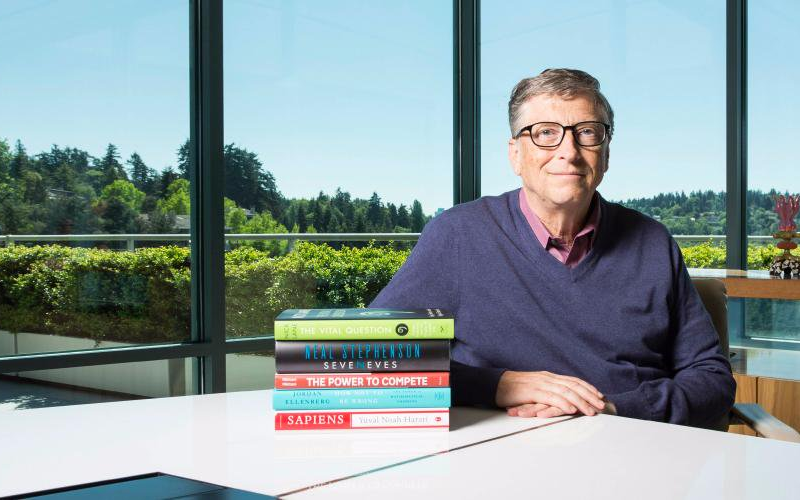Each year Bill Gates — Seattle’s infamous billionaire who founded Microsoft — releases his must-read books for the summer. As the world’s wealthiest person, when Gates speaks, people listen. In recent years, Gates has embraced social media like Twitter, LinkedIn and blogging to share his advice to business owners and entrepreneurs. He regularly blogs about topics such as philanthropy, energy, vaccinations, world health and books on his site Gates Notes.
Each year, Gates releases a couple of book roundups. The most notable are his end-of-the-year book recommendations, and his summer reading list. In the summer, Gates tries to lighten it up just a bit and includes books that make him “think or laugh, or in some cases, do both.” Last year’s recommended reads included Hyperbole and a Half, by Allie Brosh; The Magic of Reality, by Richard Dawkins; and How to Lie With Statistics, by Darrell Huff.
Keeping up with tradition, Gates released his 2016 summer reads last week in a blog post on his site. It’s just in time for reading in your favorite summer spot – with grass between your toes, or on a picnic blanket in the sunshine, or in a lazy hammock swing on the beach.
“This summer, my recommended reading list has a good dose of books with science and math at their core,” he said in his post. “But there’s no science or math to my selection process. The following five books are simply ones that I loved, made me think in new ways, and kept me up reading long past when I should have gone to sleep.”
Below are the five books Gates recommends for you to add to your GoodReads this summer:
“You might lose patience with all the information you’ll get about space flight — Stephenson, who lives in Seattle, has clearly done his research — but I loved the technical details,” said Gates. “Seveneves inspired me to rekindle my sci-fi habit.”
How Not to be Wrong, by Jordan Ellenberg
“The book’s larger point is that, as Ellenberg writes, ‘to do mathematics is to be, at once, touched by fire and bound by reason’— and that there are ways in which we’re all doing math, all the time,” said Gates.
The Vital Question, by Nick Lane
“Even if the details of Nick’s work turn out to be wrong, I suspect his focus on energy will be seen as an important contribution to our understanding of where we come from,” said Gates.
The Power to Compete, by Ryoichi Mikitani and Hiroshi Mikitani
“Although I don’t agree with everything in Hiroshi’s program, I think he has a number of good ideas,” said Gates. “The Power to Compete is a smart look at the future of a fascinating country.”
Sapiens: A Brief History of Humankind, by Noah Yuval Harar
“Both Melinda and I read this one, and it has sparked lots of great conversations at our dinner table,” said Gates. “Although I found things to disagree with — especially Harari’s claim that humans were better off before we started farming — I would recommend Sapiens to anyone who’s interested in the history and future of our species.”
About the Author
